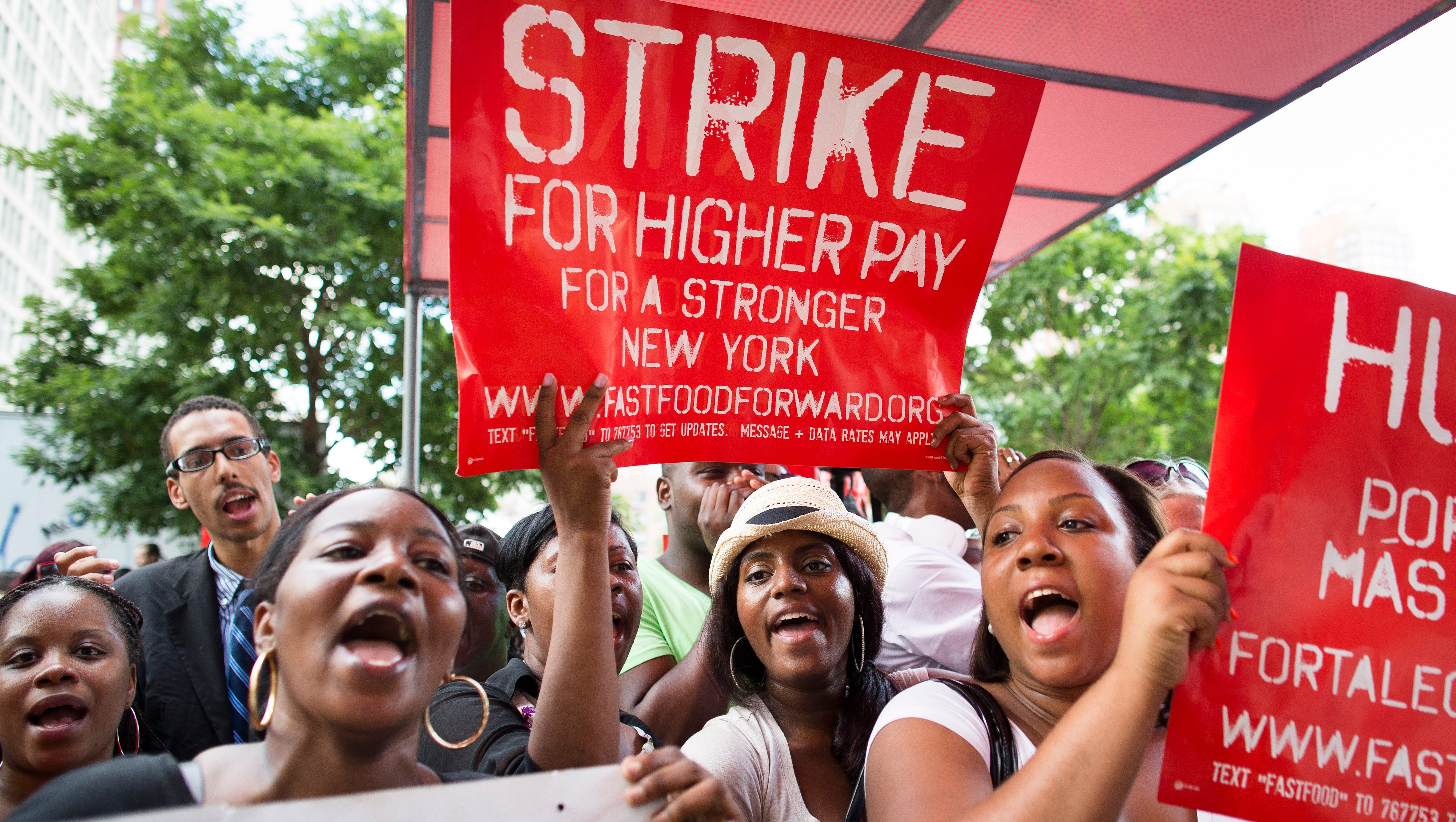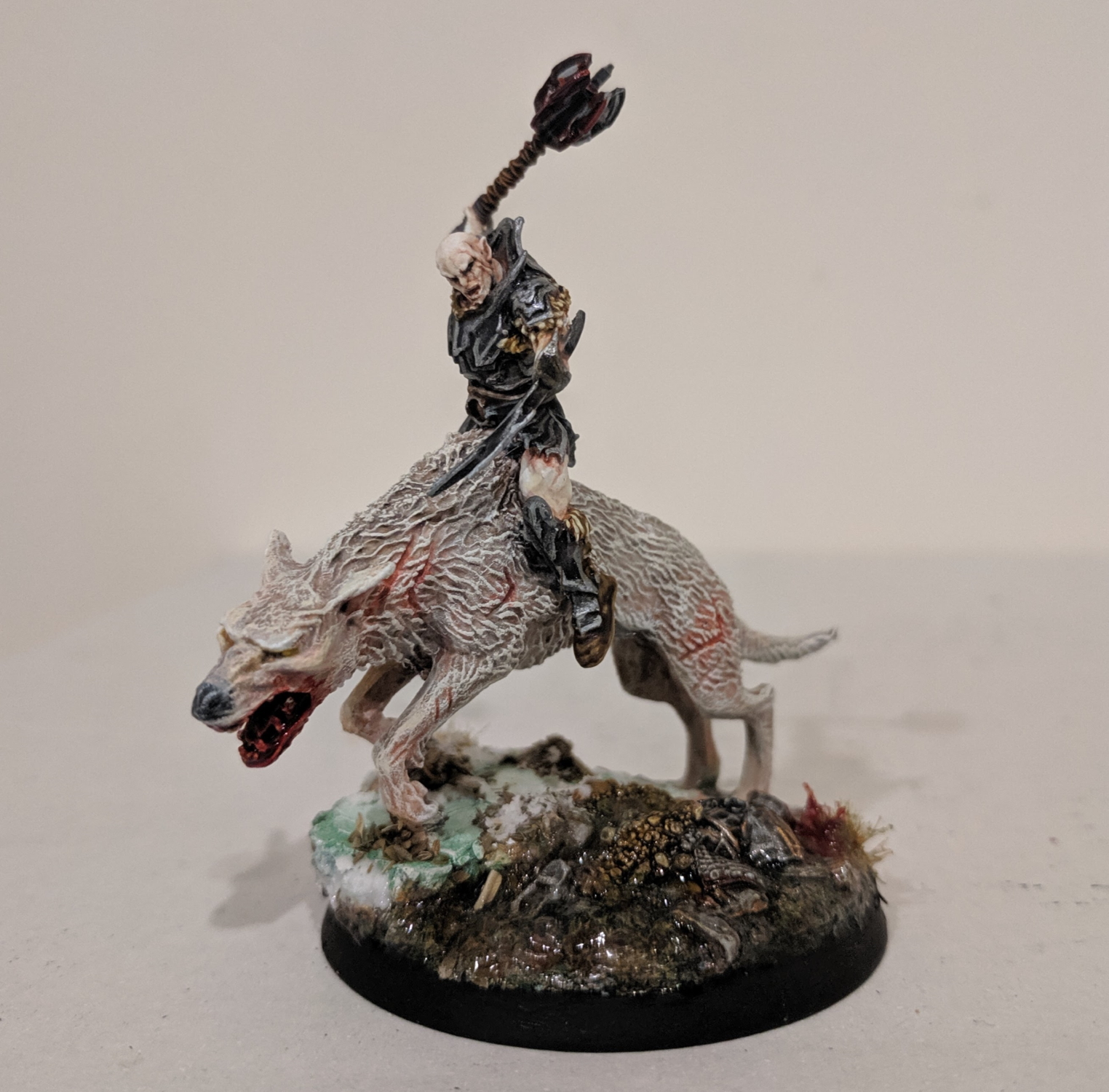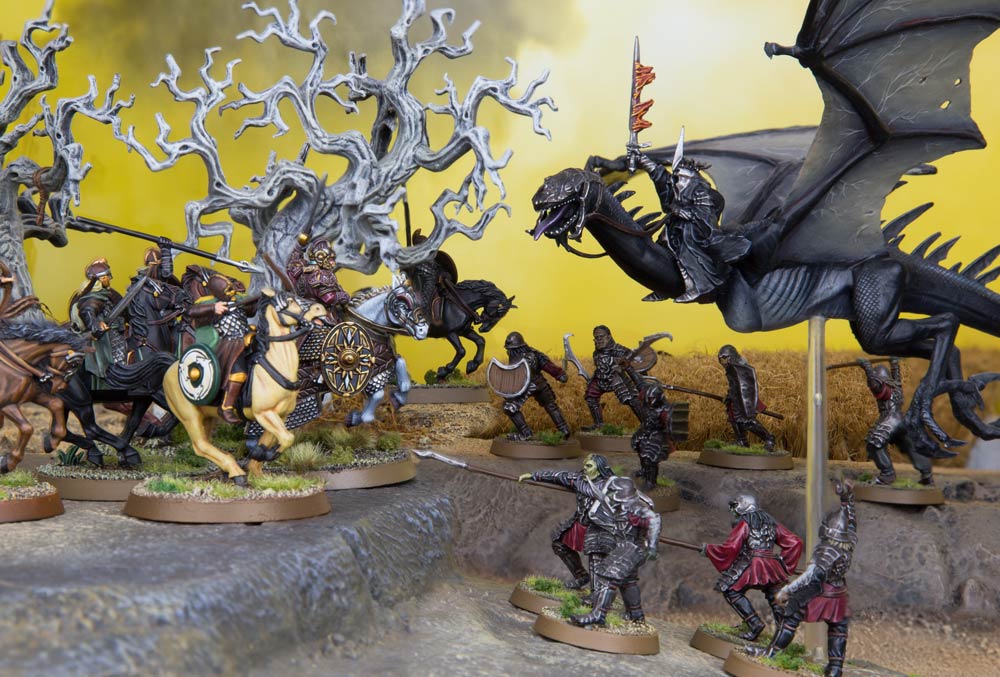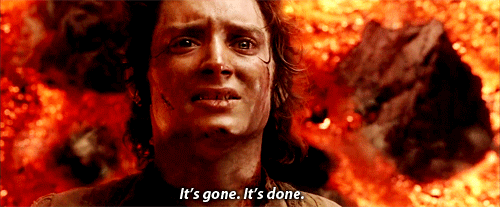Heroic Strike is universally recognised as one of the best Heroic Actions, and for good reason. Having the higher Fight value is a huge factor in winning duels between heroes, and being able to Strike allows you to tilt those odds far in your favour. However, in performing calculations for my Top Slayers of Middle Earth ranking for Evil (it’s coming, I promise!), I realised that the circumstances in which one should call a Strike are actually much more limited than I had first assumed. In fact, it turns out that you need quite a lot of factors to line up before it makes sense to Strike.
Before we dive into what those factors are, I’d first like
to outline my methodology. I used a spreadsheet that I’ve spent a number of months
tinkering with that calculates Duel probabilities with different forms of Might
expenditure. This allowed me to compare combats between different heroes using
their Might in different ways, and to draw some conclusions about what produces
the best outcomes. If you want to play around with it (and you should, it’s
great fun and I put a ridiculous amount of time into creating it) then watch
this space, it’ll be made available soon. As it turns out, the spreadsheet
recommends not calling a Strike in a shocking number of circumstances.
I’d also like to give a quick math alert here. I’ve tried to
avoid too many numbers or too much jargon, but some of it is unavoidable. If
probability makes you want to claw out your eyes, then feel free to skim down
to the bottom, where I’ve got a handy list of situations when it makes sense to
Strike.
The fundamental reason why Strike is often a bad idea is
that it’s less efficient than boosting Duel rolls. This makes sense intuitively
once you think about it. Every time you Strike, that Might point may or may not
help you win the Duel roll. You might not roll the ‘6’, or they might not, or
you might not boost your Fight value high enough to matter. In any of those
circumstances, your Might has done nothing for you. On the other hand, every
time you boost your Duel roll to win a fight, it’s an immediate and guaranteed
win (excepting tied Fight value weirdness, which makes Strike less efficient as
well). However, depending on the number of dice involved and some other
factors, you’re unlikely to get a chance to spend your Might points to
efficiently boost Duel rolls every single turn. If a fight goes on long enough
then you’ll be able to spend all your Might boosting Duel rolls, making that a
better option than Striking. But if it only lasts one turn, then it doesn’t
matter what’s more efficient in the long run, it matters what most helps you
win this fight, this turn. The key question here is how many turns the combat
will last, and how many it needs to last for boosting Duel rolls to be better
than Striking.
Another way of looking at this is seeing Strike as an
extremely expensive use of Might. That might seem less intuitive than the last
statement—
Strike usually only costs one Might point to use, just like any Heroic Action— but hear
me out. If you call a Heroic Strike, you’re guaranteed to expend one Might
point, assuming there’re no fancy special rules kicking around. If a duel goes
on for three turns, you’re now generally out of Might. On the other hand, if
you decided to hold onto that Might point to spend it on boosting your Duel or
Wound rolls, chances are good that you might not need to use it on a given
turn. To expend Might on boosting your Duel rolls, you need the following
circumstances to exist: you need to not roll a 6 in the first place, and for
your opponent to roll close enough to your highest number that boosting your
roll by one or two will actually make a difference. That means that holding
onto a Might point to boost your Duel rolls will actually only require spending
it every few turns, on average. As it turns out, the extra reliability in
beating or tying your opponent’s score is frequently worth more than having the
higher Fight value, and costs you much less Might on a per-turn basis.
Similarly, having an extra Might point to spend on Duel rolls can be thought of
as a free +2 Strength that you might get to use over multiple turns if you
don’t roll exactly one less than the required Wound roll, which can make a huge
difference to expected damage outputs.
The key point from both of these arguments is that every hero in
the game actually has access to viable alternatives to Heroic Strike, and every
circumstance in which you might Strike requires careful consideration of
whether holding onto that Might to boost Duel rolls is a more efficient use of
it. Boosting Wound rolls can also be a really efficient use of Might, but I
won’t cover it as much here. Just bear in mind that it’s also another good way
to spend Might to boost your damage output that doesn’t rely on calling a
Strike.
With that fundamental tension between calling a Strike and
spending Might on Duel/Wound rolls covered, let’s look at when the scales tip
in one direction or another.
We’ll start with the obvious situations. If you’ve already got the
higher Fight value and your opponent can’t Strike, then, uh, don’t call Strike.
Chill, Gil-galad, we don’t need to see you hit F10. Similarly, if you’re so far
beneath their Fight value that even a Strike is likely to see you outmatched,
then don’t bother. Durburz is great and all, but he’s probably best with a
Defence if he’s facing Gil-galad. On the other end of the spectrum, if both
sides are rolling bucketloads of dice to win the fight then you’re both
extremely likely to get the natural six, at which point higher Fight value will
probably be decisive. If you’ve got Hurin and a dozen warriors trapping the
Watcher in the Water, then yes, call a Strike, because otherwise you’re going
to lose some models. In contrast, if you’ve only got a couple of dice each,
then the odds of both of you rolling the same highest roll are actually pretty
low, so your Strike is unlikely to do very much. In general, if you’re rolling
less than three dice to win the duel, it’s unlikely to be a good call to Strike
up.
The general rule that we can start to build from these examples is
that the more likely both sides are to get a 6, the more useful the Strike. However,
we can go more specific than that. Let’s take a fairly common situation: two A3
characters with similar statlines and the same Fight value charge into each
other. Imagine, say, Éomer v Lurtz, or Thrain v Imrahil. Traditionally, this
has been seen as the classic Strike-off situation, where both leaders would
smash into each other, call Heroic Strikes, and whoever rolls higher likely
wins the fight. However, by my maths, this is actually not a great use of Might
for either side. In fact, in either of those duels, the hero who held onto
their Might to boost Duel rolls is predicted to beat the one who calls a
Strike! Delving into the maths, we can see why: a Striking hero is likely to
win the Duel roll about twice as often as their equivalently-statted adversary
who spends no Might. So the Striking hero will probably win 2 out of the first
3 turns of combat. However, they’d actually get slightly better results from
just hanging onto the Might point to boost Duel rolls, winning a marginally
higher percentage of Duel rolls against an adversary with no Might! More
importantly, you get that same benefit (winning 2 out of every 3 fights on
average) while only needing to spend a Might point every 6 or so turns of
combat. That means that you can comfortably sustain the expenditure for almost
18 turns, while a Striking hero would be out by the third turn! The eventual
outcome of the showdown is therefore that the Striking hero has a slight edge
for the first three turns of combat, winning abut 53% of those Duel rolls.
However, they have a massive disadvantage after that, losing about 65% of Duels
and thus receiving about twice as much damage as they’re dishing out.
From this, we get another, more specific principle: in combats
between two A3 heroes with the same Fight value, don’t call Strikes unless the
combat is likely to be finished within 3 turns. If it is going to continue past
the 3-turn mark, then you’re better off spending your Might on boosting Duel
rolls. If, on the other hand, it all comes down to those first few turns (say,
you’re a fragile foot character being charged by a mounted combat monster and
if you don’t win the fight this turn you’re dead meat), then Strike is the
better option to lock in those first couple of wins. In fact, in those
circumstances you may as well commit to Striking AND spending Might on Duel
rolls to get up to an 83% chance of winning the fight and surviving, albeit
only for a couple of turns. Otherwise, if your opponent Strikes up, just ride
out the first few turns and grind them down once they’re out of Might. As an
additional note, if the characters in question have more dice to win the Duel,
whether from banner rerolls or supporting spearmen, the main effect on the
maths is that the ‘tipping point’ (the number of turns the combat needs to last
for Striking to be worse than boosting Duel rolls) increases a little. At 5
dice, for example, the tipping point is at turn 6 of the combat, at which point
the character burning Might on Duel rolls should have inflicted marginally more
Wounds than their Striking opponent. The other thing to remember is that a hero
spending Might on Duel rolls can probably afford to spend it on Wound rolls as
well while still outlasting their opponent, and at that point they’re
inflicting around twice as many Wounds in the first few turns as well. So if
you’ve got the same Fight value and no one has an Elven-made weapon, only Strike
if you really, desperately need to.
So that covers when the two combatants have an equal Fight value.
But what about when one is a little higher, or has an Elven-made weapon? Here,
things shift in favour of the Strike. This is mainly because a hero with the
higher Fight value, who is free to spend Might points on boosting their Duel
rolls, is going to win the fight almost every time. In fact, if they’re willing
to spend Might to boost 4’s into 6’s (which they should be able to sustain for
around 13 turns of combat), they will win a whopping 89% of combats, which
translates into vastly more Wounds inflicted. So as the hero with lower Fight
value, you basically need to Strike in order to force them to do the same. If
they match you with a Strike, then you get almost 50% chances of winning the
fight for the first three turns, then you’re down to 35% after both sides are
out of Might— vastly better than the 11% odds you had before. If they decline
to Strike up, then you’re likely to win 57% of the first three Duels. After
that you’re back down to 11%, but at least you get those first few combats to
hopefully inflict some Wounds or dismount them. So if you’ve got the lower
Fight value in a combat between two A3 heroes, Strike up unless they’re already
out of Might. If you’ve got the higher Fight, then it again comes down to how
long you think the fight will last, with Striking being better for the first
few turns and boosting Duel rolls better for the longer term. If both sides
have the same Fight value but one has an Elven-made weapon, that has a fairly
similar effect on the probabilities, with the non-Elf wanting to Strike and the
Elf tossing it up based on how long the combat will likely last. However,
because the Elf doesn’t automatically win tied rolls, just 2/3 of them, there’s
a stronger argument for boosting Duel rolls instead of Striking.
One final point: if you’ve got the lower Fight value but your
opponent has no Might, you actually probably don’t want to Strike unless you
have lots of friends along. In a combat between Éomer and a Mordor Troll, for
example, you actually have fairly equivalent odds of winning Duel rolls if
you’re burning Might on boosting rolls instead of Striking up, and you can do so for
the whole combat instead of ~ 1/3 of it. The numbers get a lot closer if you’re
only one Fight behind, but they still likely come out in favour of boosting
Duel rolls unless you’ve got other friendlies in the fight with you.
If you skipped all of the scary maths stuff, start reading again
here.
We end up with a few general principles, and a few more specific
ones. Generally, if both sides roll lots of dice (5 or more), Striking is more
useful. If the combat is likely to last many turns (4 or more, roughly),
modifying Duel rolls is better. If you’ve got the same Fight value and no one
has an Elven-made weapon, almost certainly don’t Strike. If you’re likely to
lose tied Duel rolls, then probably do if they have any Might remaining.
I’ve compiled all of this into a handy cheat sheet below, of
when to Strike and when not to do so. Feel free to print this out and take it
along to your games, as it’s quite useful as a method of determining the most
efficient use of Might. It’s ordered from top to bottom, from situations where
it’s extremely clear cut to situations where it’s a bit hazy. In any case,
don’t take it too seriously; there will be heaps of circumstances where burning
Might on a Strike is absolutely worthwhile, because you just have to win the
fight this turn. Use your instincts and understanding of the game state to
take these numbers with a grain of salt, but just remember that the Strike is probably
less necessary than you think it is.
When to call a Heroic Strike | When not to call a Heroic Strike |
It’s free (Master of Battle etc…) | You have the higher Fight value and they’re not Striking up |
Whoever loses the Duel is likely to die this round or otherwise lose the game | You’re the same Fight value as your opponent, they don’t have an Elven-made weapon, and the fight probably won’t end this turn |
Both sides are rolling absurd numbers of dice to win the fight (6 or more) | Grima is nearby (booooooo!) |
You’re facing a hero with Might remaining who has a higher Fight value or an Elven-made weapon | You’re higher Fight value or have the Elven-made weapon advantage and they’re Striking |
You’re facing a hero with the same Fight value and no Elven-made weapon and one of you will be dead by the time you’re out of Might | You have more important uses for the Might outside the Fight phase |
You’re facing a model with higher Fight value but no Might AND you’ve got friends along to help | The combat will last a long time (more than 5 turns) |
They have higher Fight value but no Might and it’s a one-on-one Fight |
If you take anything away from this article, take the fact
that spending Might on Duel rolls is really, really good, and doing so is a
good idea in an awful lot of situations. Alternatively, take it as read that
Heroic Strike is a dumb Heroic Action for newbs, and you should never field
anyone who can call it (please don’t actually believe that, Strike is great and
you should almost always include models who can call it. Please don’t leave me
angry comments).
I hope you enjoyed this article, and that it made you think
a bit more about how to spend Might in combat. If you loved the maths in this
article, stay tuned for the eventual release of my super spreadsheet that I’ve
been slaving away at for months. If not, don’t worry, there’s lots of other
less nerdy stuff coming down the pipeline.
Until next time, may your heroes always have the Might points they need!









Great article as always and I am really astounded each and every time by how much work and actual knowledge you put into this kind of thing. Amazing and well done!
ReplyDeleteThank you so much, I really appreciate it!
Delete